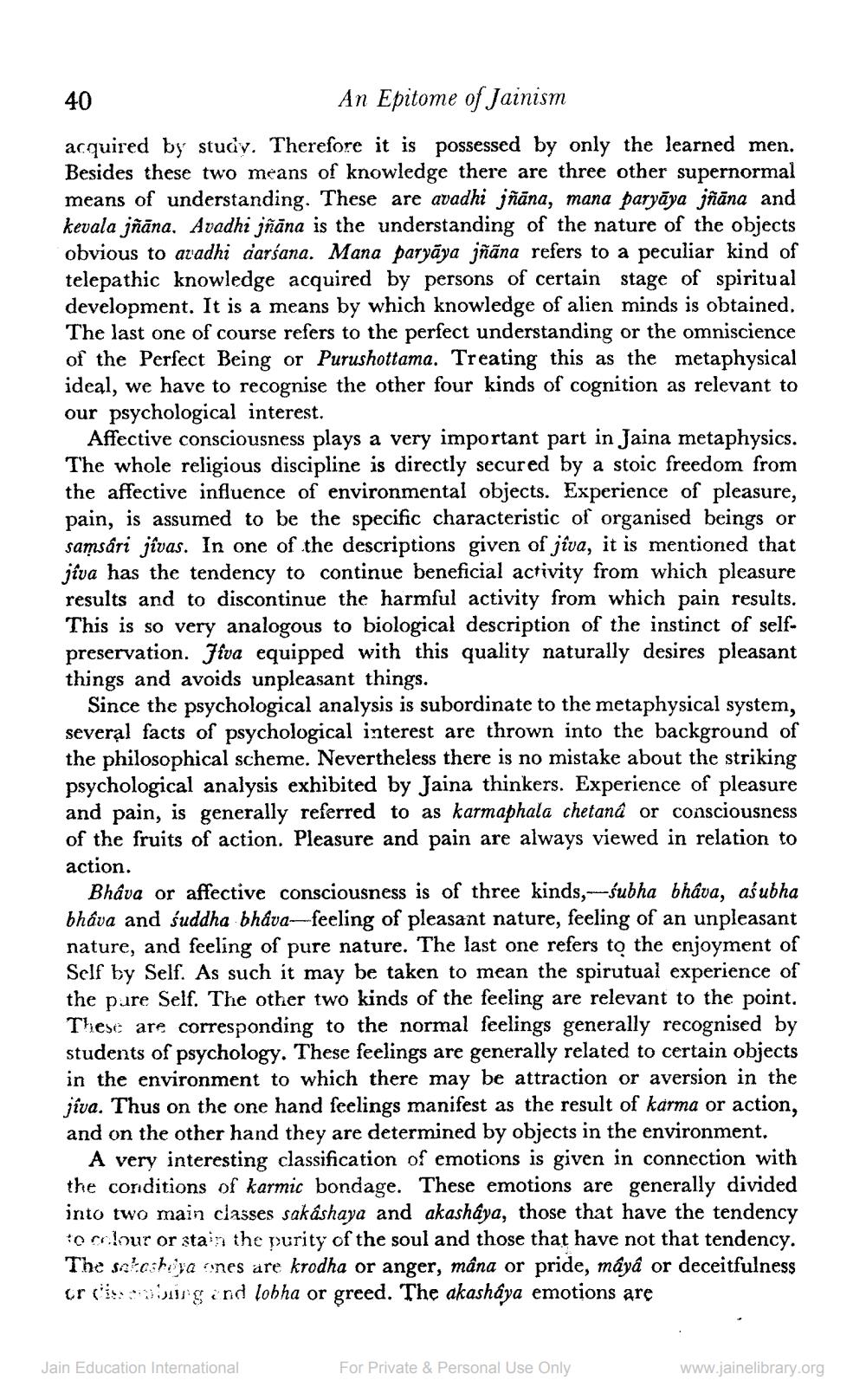________________
40
An Epitome of Jainism
acquired by study. Therefore it is possessed by only the learned men. Besides these two means of knowledge there are three other supernormal means of understanding. These are avadhi jñāna, mana paryāya jñāna and kevala jñāna. Avadhi jñāna is the understanding of the nature of the objects obvious to aradhi darśana. Mana paryāya jñāna refers to a peculiar kind of telepathic knowledge acquired by persons of certain stage of spiritual development. It is a means by which knowledge of alien minds is obtained, The last one of course refers to the perfect understanding or the omniscience of the Perfect Being or Purushottama. Treating this as the metaphysical ideal, we have to recognise the other four kinds of cognition as relevant to our psychological interest.
Affective consciousness plays a very important part in Jaina metaphysics. The whole religious discipline is directly secured by a stoic freedom from the affective influence of environmental objects. Experience of pleasure, pain, is assumed to be the specific characteristic of organised beings or samsári jívas. In one of the descriptions given of jîva, it is mentioned that jiva has the tendency to continue beneficial activity from which pleasure results and to discontinue the harmful activity from which pain results. This is so very analogous to biological description of the instinct of selfpreservation. Jiva equipped with this quality naturally desires pleasant things and avoids unpleasant things.
Since the psychological analysis is subordinate to the metaphysical system, several facts of psychological interest are thrown into the background of the philosophical scheme. Nevertheless there is no mistake about the striking psychological analysis exhibited by Jaina thinkers. Experience of pleasure and pain, is generally referred to as karmaphala chetanâ or consciousness of the fruits of action. Pleasure and pain are always viewed in relation to action.
Bhâva or affective consciousness is of three kinds ----subha bháva, aśubha bhava and suddha bhava-feeling of pleasant nature, feeling of an unpleasant nature, and feeling of pure nature. The last one refers to the enjoyment of Self by Self. As such it may be taken to mean the spirutual experience of the pare Self. The other two kinds of the feeling are relevant to the point, These are corresponding to the normal feelings generally recognised b students of psychology. These feelings are generally related to certain objects in the environment to which there may be attraction or aversion in the jiva. Thus on the one hand feelings manifest as the result of karma or action, and on the other hand they are determined by objects in the environment.
A very interesting classification of emotions is given in connection with the conditions of karmic bondage. These emotions are generally divided into two main classes sakáshaya and akashấya, those that have the tendency orolour or stain the purity of the soul and those that have not that tendency. The saleshova nes are krodha or anger, mâna or pride, mâyâ or deceitfulness crisovugend lobha or greed. The akashấya emotions are
Jain Education International
For Private & Personal Use Only
www.jainelibrary.org




